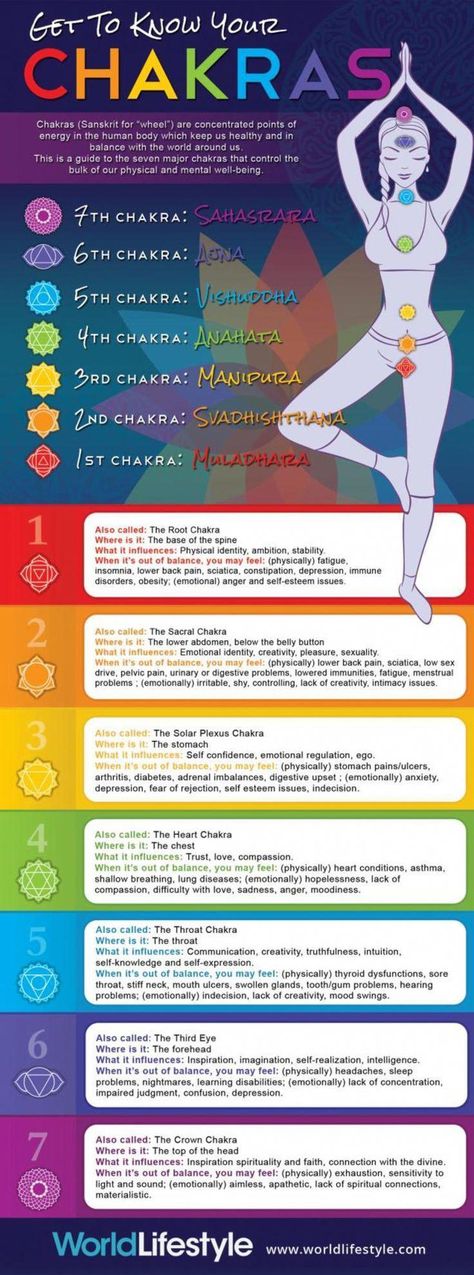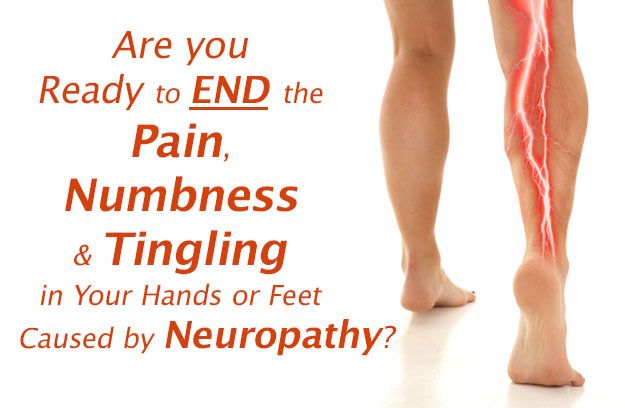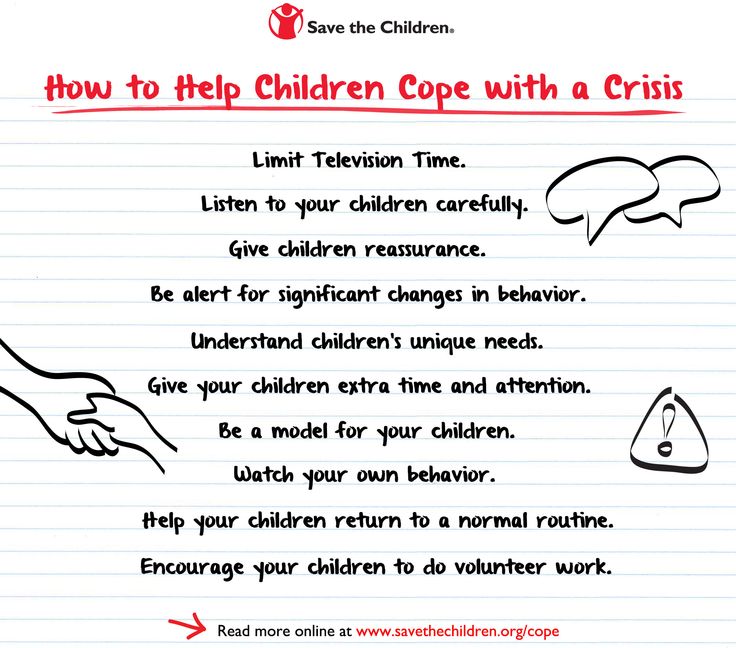Lacking emotional intimacy
11 Toxic Signs There's No Emotional Intimacy in Your Marriage
A marriage with no emotional intimacy is one of the most common (and painful) marital complaints reported by couples:
It keeps you up at night, worrying about what’s wrong with your relationship and whether your marriage can last.
It leaves you feeling frustrated, disconnected, and alone.
But no matter how emotionally disconnected you might feel right now, the good news is that you can rebuild connection in your relationship.
And take it even deeper than you’ve ever experienced before.
In this blog, you’re going to learn:
- What exactly a lack of emotional intimacy is
- Why relationships lose emotional intimacy
- 11 toxic signs that there’s no emotional intimacy in your marriage
What Is A Lack Of Emotional Intimacy?
Relationships that lack emotional intimacy are characterized by feelings of isolation, disconnection, and a lack of emotional safety.
Even though there’s time spent together, there’s no real emotional connection or understanding between you. And the effects of a lack of intimacy are serious.
Over time, a lack of emotional intimacy will grind a relationship down, and ultimately break it apart:
A study* by psychologists Gigy & Kelly from the California Divorce Mediation Project found that the breakdown of emotional connection in relationships is one of the leading causes of divorce.
And one of the leading causes of affairs.
So it’s safe to say that without emotional intimacy, a relationship can feel empty and ultimately, pointless.
Can a Marriage Survive Without Emotional Intimacy?
Most marriages will struggle to survive without emotional intimacy. Emotional connection is an essential ingredient in a healthy marriage, and a core reason couples enter relationships in the first place. You might be able to tough it out for the kids or for financial reasons, but most couples desire more than just grinding away the years together.

And when a marriage has the potential to be so much more, why would you settle?
Modern marriage asks a lot more of us. It’s not the 1800s anymore – we want more than just a convenient financial or political arrangement:
- We want to feel close, connected, loved, and cherished.
- We want to become a kick-ass team, sharing life’s adventures and taking on the world together.
- And we want our relationships to nurture and inspire us – to help us grow into our best selves and fulfil our highest potential.
It’s not enough then for a marriage to just survive. Now, more than ever, we want our marriage to thrive.
And to do that, emotional intimacy is essential.
Why Do Relationships Lose Emotional Intimacy?
Relationships lose emotional intimacy for simple reasons like busy schedules or difficulty finding quality time together. Or there can be more emotionally-nuanced and complex reasons, from a lack of emotional safety, fear of vulnerability, or underlying tensions in the relationship.

Here’s the thing – although most couples desire a deep sense of connection, emotional intimacy can also be scary. And there are plenty of things that can get in the way:
- Unresolved hurts, conflicts, and resentments that make it feel unsafe to open up.
- The vulnerability of being seen… Or the fear of being rejected, unlovable, or ‘not enough’.
- Simply not knowing how to build emotional intimacy, and being scared to try something new.
Unfortunately, some of our most sincere attempts to create emotional intimacy often go awry and create even more distance, simply because we don’t have the right tools for connection.
But maintaining or rebuilding emotional intimacy is a skill – and like any skill, it’s something that can be learned.
We’ll get to the how in a moment. But first, let’s take a closer look at the effects of a lack of intimacy in a relationship.
11 Signs There’s No Emotional Intimacy In Your Relationship
signs there’s no emotional intimacy #1:
You’re Distancing Yourself
As emotional intimacy in a relationship begins to fade, it’s common to withdraw and emotionally detach as a coping strategy. Emotional disconnection is a painful experience, so it makes sense that you’d want to take steps to protect yourself.
Emotional disconnection is a painful experience, so it makes sense that you’d want to take steps to protect yourself.
But this emotional detachment only creates more distance, and the downward spiral of disconnection continues.
signs there’s no emotional intimacy #2:
You Feel Lonely
It’s one of the most painful experiences you can have in a marriage – to spend so much time with your partner, and yet still feel alone:
To sleep in the same bed, eat meals at the dinner table, to share a life with them, and yet feel like you don’t know them. Or that they don’t truly see the real you.
Feeling lonely, misunderstood, or distant from your partner, even when you’re living under the same roof, is a clear sign there’s a serious lack of emotional connection in your relationship.
signs there’s no emotional intimacy #3:
You’re Less Affectionate
A relationship without emotional intimacy can quickly become a relationship without affection.
When there’s distance between you, reaching out for physical affection – whether it’s holding hands, cuddling, or kissing – can feel vulnerable or scary.
And if a lack of emotional connection has started to affect your sex life, physical affection can be misread as an unwanted attempt to initiate sex, which creates even more strain and tension.
signs there’s no emotional intimacy #4:
You’re Having Less Sex
Whether you’re in a sexless marriage or a low-sex relationship, a lack of emotional intimacy is a commonly-overlooked cause.
Many couples make the unfortunate mistake of blaming low libidos. Which has them searching for answers in all the wrong places.
But if you’re not having as much sex as you’d like to (or if you find that the topic of sex keeps leading to arguments) emotional detachment can be a likely cause.
signs there’s no emotional intimacy #5:
You Don’t Know What To Say
If you don’t have the skills to build emotional intimacy in your relationship, it’s likely that your conversations have become flat and lifeless. After so long together, it can feel like there’s nothing left to say.
After so long together, it can feel like there’s nothing left to say.
But the same skills that build intimacy are the same skills that give you new and exciting things to talk about.
Who you are, the things you think, and the things you feel, are always changing. Which means there’s always more to share, explore, and discover about each other.
signs there’s no emotional intimacy #6:
You’ve Lost Empathy
You probably know that empathy – ‘the ability to understand and share the feelings of another’ – is important. But if you’re lacking emotional intimacy in your relationship, having empathy can be difficult:
How can you seek to understand each other if you feel emotionally distant? And if you feel like your partner doesn’t listen or show you empathy, it can be challenging to offer it in return.
As you lose empathy for each other, opening up and being vulnerable feels unsafe, leading to even more emotional withdrawal.
signs there’s no emotional intimacy #7:
You’re Arguing More
From the top things couples argue about (sex, parenting, money, family, housework), to the seemingly trivial (like the right way to make a grilled cheese sandwich*), a lack of emotional connection puts you on edge and always ready to fight.
signs there’s no emotional intimacy #8:
You Communicate With ‘Barbed Jokes’
You know the ones:
Those thinly-veiled attempts at ‘innocent humour’ that are actually unspoken complaints or passive-aggressive attempts to get your point across, or change each other’s behaviour.
When there’s no emotional intimacy in your marriage, it doesn’t feel safe to bring up concerns directly. So we try to use less direct methods. (#protip: not being clear makes things worse).
➜ RELATED: Be A Better Husband By Avoiding These 21 Common Mistakes
signs there’s no emotional intimacy #9:
You’re Walking On Eggshells
If you’re scared of saying the wrong thing or getting into an argument, then you’re likely walking on eggshells around each other.
But trying to always say the right thing and manage your partner’s moods is exhausting – and it’s a sign that the trust and intimacy in your relationship is dangerously low.
It means you’re either fighting too much, or you don’t have an effective strategy for having difficult conversations and turning conflict into connection. To begin rebuilding emotional intimacy, the first step is letting go of responsibility for your partner’s emotions.
To begin rebuilding emotional intimacy, the first step is letting go of responsibility for your partner’s emotions.
signs there’s no emotional intimacy #10:
You Don’t Support Each Other
When you have emotional intimacy, you feel like an unstoppable team. It’s the two of you, taking on the world together, and supporting each other to become your best selves.
But if the intimacy is gone, you don’t have the energy or the desire to champion each other. You’re more like adversaries: score-keeping and trying to ‘win’ against each other.
signs there’s no emotional intimacy #11:
You Question If You’re In The Right Relationship
Emotional connection is an essential human need and a core reason why we get into relationships. So if your emotional needs are not being met, it’s natural to doubt whether your relationship will make you happy in the long term.
You might find yourself fantasizing about other people, or thinking through the practicalities of a separation.
Although it’s natural to have moments of doubt in a marriage, if it’s a long-term pattern, it’s a sign that something needs to change.
Rebuilding Intimacy In A Relationship
Well… That’s the bleak bit out of the way.
Now that you know some of the warning signs to look out for, it’s time to focus on how to rebuild emotional intimacy.
In part two, you’ll learn 14 practical, evidence-based tools, techniques, habits, and mindsets that’ll help you create a deeply-connected relationship. Check it out here:
How To Build Emotional Intimacy
Or if you’re ready to take your relationship to the next level, these 11 conscious marriage goals will help get you there.
Sources & References
At Practical Intimacy we’re committed to keeping our content accurate, reliable, and trustworthy. We use only high-quality sources, including peer-reviewed studies, to support the facts within our articles.
Borresen, Kelsey. (2016, January 15) 17 Truly Ridiculous Things Couples Have Actually Fought About. Huffpost.
https://www.huffpost.com/entry/truly-ridiculous-things-couples-have-actually-fought-about_n_5699450ce4b0ce4964245e88
Brookes Kift, L. (2017, February 27) In Relationships, Not Arguing Means You’re Not Communicating. The Gottman Institute. https://www.gottman.com/blog/relationships-not-arguing-means-youre-not-communicating/
Reece Stockhausen & Jodie Milton have made improving people’s lives and relationships both their passion, and their career. With over 25 years experience in the Personal Development industry, and 8 years coaching singles and couples, their no-BS advice has been featured in Cosmopolitan, Bustle, and HuffPost.
Book in for a complimentary online video call to discover how their men's, women's, and couple's coaching programs can support you.
5 Signs Your Relationship Lacks Emotional Intimacy and Coping Strategies
Sure physical intimacy, love, and affection are requisites of a healthy relationship; emotional intimacy arguably is of paramount significance in maintaining and nourishing them, the lack of which can not only be detrimental to the relationship but can also pose a threat to the mental well-being of one or all of the partners involved.
The definition of intimacy in relationships is often confined to sexual relations, but there is much more to it than just that. Connecting to one another on a spiritual and psychological level is just as important as any other component of a relationship.
To understand what emotional intimacy is and what role it plays in a relationship, along with its signs, causes, and coping strategies, read on below.
What is Emotional Intimacy?
To define in the simplest words, emotional intimacy is the connection you share with your intimate partner on a spiritual level. To some, it may seem like the most intimate you can get with your partner is when you’re physically intimate, but the intimacy of two minds sharing something akin to that physical intimacy can be an unparalleled feeling.
A relationship is the coming together of two lives. It would only be fair to be completely truthful to each other with no secrets and lies whatsoever. Emotional intimacy can give you that complete, unmitigated understanding and sensitivity that is so important for the nourishment of a healthy relationship.
To sum it up, what is emotional intimacy? It is the rawest and the truest bits of you exposed to your partner and vice versa. It is the ease of being able to share the deepest and the darkest parts of you: your dreams, fears, aspirations, and traumas. It is somewhere you can be candid and your true authentic selves without fear of judgment on either part.
This kind of uninhibited melding of two lives is the core and the foundation of every thriving relationship. It provides the perfect grounds to cultivate trust, understanding, boundaries, respect, affection, honesty, communication, and the ability to feel comfortable even while vulnerable in front of your significant other.
Lack of Emotional Intimacy Between Partners and Mental Health
Physical connections are much easier to build and maintain than emotional connections. The state of your mental health can be greatly affected by the kind of connection you share with your partner. Similarly, your mental well-being can majorly impact your relationship with your partner.
A healthy relationship requires a foundation built on trust, communication, honesty, affection, understanding, and respect, all of which are key components of emotional intimacy. A lack of these qualities, or inability to encourage these attributes can result in an unhappy, unsatisfactory relationship that does not fulfill its purpose.
Therefore, a lack of proper emotional bonding between partners can disturb the dynamics of a relationship, leaving it unstable and susceptible to damage. Several studies conducted on the factors impacting romantic relationships suggest people involved in unstable relationships are more likely to suffer from mental health conditions, such as anxiety, depression, feelings of isolation and disconnection, and suicidal impulses.
On the other hand, partners involved in stable relationships display a decline in psychological distress and mental health problems, indicating high-quality relationships that value emotional attachment and intimacy just as much as physical bonding are linked to lower stress and depression levels, and higher self-esteem, and happiness.
Do you often feel like something is missing in your otherwise very successful relationship? Does it feel like your relationship is confined to only the physical elements of it? Do you wish you shared a deeper connection with your partner; to be intimately involved and familiar with your partner on a psychological and spiritual level, wishing your relationship to transcend the material aspects of it sometimes?
This may indicate that you and your partner lack emotional intimacy. Here are 5 major signs that indicate a lack of emotional intimacy in relationships:
- You feel lonely and disconnected
- You feel misunderstood and judged
- There’s an imbalance of communication
- You’re lacking physical intimacy
- There’s a lack of support
What Causes a Lack of Emotional Bonding in Relationships?
In a relationship, establishing and maintaining emotional intimacy can be a daunting task, especially because it challenges not only your partner but also yourself to face your fears and entails stepping out of your comfort zone. There can be several reasons why you or your partner seem to be having a difficult time building that special bond. Here are some common reasons that may be hindering the process of establishing the emotional intimacy you find lacking in your relationship, including:
There can be several reasons why you or your partner seem to be having a difficult time building that special bond. Here are some common reasons that may be hindering the process of establishing the emotional intimacy you find lacking in your relationship, including:
- Lack of Self-awareness
- Fear of Judgement
- Trust Issues
- Lack of Understanding
- Poor Listening Skills
- Poor Self-Esteem
- Rough Relationship Experiences in the Past
- Experiencing Emotional Abuse and Neglect
Tips on How to Regain Emotional Intimacy in a Relationship
Lack of emotional intimacy is something that demands to be acknowledged. No matter how hard you try to make it work without it, it will make sure you know you’re lacking it. After a while, you may even start craving it, because, without it, your relationship feels incomplete. Ironically, the idea of building emotional intimacy is never really explained to you when you’re exploring relationships, so you find yourself unable to do anything as you watch your relationship go downhill.
Don’t worry though, there are several ways to rebuild the lost connection of your souls, or, if you wish to learn to establish it from scratch, here are some coping strategies and tips to overcome this hurdle:
Be Supportive of Each Other
Support is a key ingredient in any relationship. Your spouse is supposed to be your support system and vice versa in times of need. We all go through hard times during which it is natural to feel needy and desire support from your partner. Emotional support is all about providing affection, reassurance, and encouragement to your partner when you feel like they have had a bad day.
A lack of emotional support can make your partner feel unsafe and undesired in your relationship and it can have detrimental effects. Emotional support builds trust, respect, and security in a relationship, allowing each member to feel whole, knowing that they can rely on each other no matter what the situation.
Don’t Shy Away From Being Candid
A relationship where you or your partner do not feel a hundred percent comfortable with sharing ideas, concepts, thoughts, and secrets with each other defies the very concept of a relationship. A healthy relationship entails finding solace in one another and speaking your mind out without fear or hesitation.
A healthy relationship entails finding solace in one another and speaking your mind out without fear or hesitation.
Constantly worrying that you being candid about your thoughts might jeopardize your relationship, or fear that your partner might judge you for your past can harm the bond that is holding your relationship together. Each partner needs to be him or herself around the other without an ounce of fear. At the same time, it is important to respect each other’s decisions, values, and thoughts. However, of course, constructive criticism and advice should always be welcomed.
Work on Being a Good Listener
A lot of relationships dwindle and lose their charm when one or the other partners feel like they are not being listened to. Nobody wants a wall for a partner. At the same time, nobody wants a rigid teacher or coach for a partner as well who has nothing but criticisms and unwarranted advice to hand out every time their partner shares something with them. Sometimes, all one needs is a listener, who would let you rant about anything and everything without judging you or offering unsolicited advice.
There’s a lot that goes into listening. It entails paying attention, observing, asking valid questions, observing the issue, and then, if asked, chipping in with appropriate advice, or helping your partner come up with solutions for their issue if they need you.
Ditch Movie Night for Deep Conversations With Partner
Sure movie nights are fun and great for the prosperity of a relationship, but every once in a while, ditching movie nights for conversation nights can be equally as great. With most couples working throughout the day or taking care of kids or other chores, spending quality time with your partner is often only ever confined to movie nights. Again, it’s great for the whole bonding process as well, but communication is one of the most important ingredients for building emotional intimacy.
Relaxing with your partner to keep company and having deep conversations about anything and everything; your secrets, your fears, your weaknesses, your strengths can give your partner a lot of insight into your thought process and mindset. It can allow each of you to be able to do what your partner needs you to do at a certain time. It can allow you to read each other and be able to be each other’s strengths if need be.
It can allow each of you to be able to do what your partner needs you to do at a certain time. It can allow you to read each other and be able to be each other’s strengths if need be.
Conclusion
Bottom line is, emotional intimacy is the foundation of every healthy relationship, without which, the spirit of your relationship can be dimmed, which is why it is crucial for couples to understand exactly what emotional intimacy is and why it is so important in relationships. Physical intimacy can only sustain relationships for so long until the lack of emotional support, which includes trust, compassion, communication, honesty, understanding, etc. results in significant damage.
What threatens the lack of emotional contact in a relationship?
70,344
Man and woman Relationship crisis
Internal contradiction
If for some reason you do not have enough emotional contact with your partner - for example, because he suffers from a personality disorder - this complicates the relationship in a couple . “When you try to make contact, suggesting that your loved one change something in himself, most likely he refuses:“ I am who I am. Take it or leave,” explains psychotherapist Shari Stines.
“When you try to make contact, suggesting that your loved one change something in himself, most likely he refuses:“ I am who I am. Take it or leave,” explains psychotherapist Shari Stines.
In the end, you can convince yourself that it's better to really start taking it - whatever one may say, no one is perfect. There is a contradiction. You make the decision to maintain a relationship devoid of emotional contact. Being close to a person who is dear to you, you feel an inner emptiness. This feeling comes from the fact that there is no emotional attunement and emotional resonance in your relationship, two of the most important components of a healthy relationship.
Attunement
Attunement is the ability to see, hear, feel, interpret and respond to another person's verbal and non-verbal cues so that they know they are being seen, heard and understood. This is a subtle, complex, very delicate "dance" of two people - two complex biological and psychological systems.

Resonance
Resonance is a complex process of rapid exchange of information, primarily non-verbal, which allows you to establish contact on a deep, subconscious level and creates emotional harmony. It is he who connects the mother and the baby. Resonance is a mechanism of love, a constant mutual emotional response, a kind of synchronous dance of feelings.
When you are ignored
"Agreeing to a relationship on someone else's rules - no conflict and stress and no emotional contact - you doom yourself to dissatisfaction," explains Shari Stines.
In relationships with people who find it too difficult to build a full-fledged emotional contact, you will still be required to be involved. But you will soon realize that such communication is very superficial and is not able to satisfy your deepest needs for understanding and acceptance. In essence, you are spending time with a person who seems to be around, but at the same time does not “see” you or even care about your presence.

In union with a partner who is not attuned to you and does not resonate with you at the level of feelings, a contradictory dynamic arises on an emotional level.
At first you just realize that you were expecting too much and try to adjust. In the process, you realize that you will never get emotional warmth from this person. You try to accept it, you try to “love him in a detached way”, not getting what you expected from the relationship.
Even if a loved one writes you messages, letters, you talk, go to cafes, he still emotionally ignores you in the process of communication. This is very painful because you realize that there is no depth in the relationship.
Such detachment is contrary to our nature
“The brain is arranged in such a way that you will miss the emotional connection with your partner. You can fall into an anxiety-depressive state, because the brain will not understand what your pseudo-close relationship with this person means, and will begin to create painful experiences, trying to adapt to the situation, ”Stines is sure.

These unpleasant sensations are designed to make you change something. You will try to accept reality as it is, and the pain will continue until it is eventually replaced by numbness.
The difference between reality and expectations
Many therapists advise clients to get used to living in a space between expectations and reality. “Trying to learn how to live in this space, you will eventually get lost in it, desperately trying to feel needed and loved,” says psychotherapist and coach Alan Robarge.
Your loved one seems to be near you, but it seems as if he is thousands of kilometers away. Cognitive dissonance inevitably arises. It is very hard for you, but you cannot do anything, you are trapped. Gradually, a state of “learned helplessness” arises, and you are like a robot repeating the usual rituals to save relationships. Such relationships, to put it mildly, bring only disappointment.
We have to admit: in such a union you will never satisfy your emotional needs and needs
No matter how cheerful, pleasant and polite your partner may be, all this does not compensate for the feeling of emotional emptiness.
During conversations with him, you understand that nothing is happening, the call of your heart, longing for intimacy, remains unanswered.
If you are honest with yourself, you will realize that relationships and emotional closeness with people dear to you is the most important part of life. By not allowing you to experience the joy of true intimacy, your partner is depriving you of this most important experience. In the end, you will understand: you can save such a relationship only by losing yourself. But is the game worth the candle? ..
Text: Nikolai Protsenko Photo Source: Unsplash
New on the site
The body hints loudly: 6 signs that you are ignoring your true desires
A month of happiness: how to support yourself and others in difficult times
Life after 30 years: 8 discoveries—prepare for them
“I ended my relationship with a guy in the heat of the moment. Then I regretted it, but it was too late”
“A guy from a dating site follows me and writes vulgar things”
Asexuals and love: is it possible to have a romantic relationship without sexual desire?
Who is mother to whom: 4 roles played by children in a family of infantile parents
Do not suppress, but control: how the ability to recognize one's emotions makes life better
Lack of emotional closeness with her husband: what to do?
Published:
Illustrative photo: Pixabay.
com
Emotional intimacy is the main component of relationships that motivate a man and a woman to try and work on them. Strong happy couples tend to have tricks that help them in satisfying their partner in every way.
There may be something special about the relationship of a couple that you consider ideal, which makes it so. This feature can be emotional closeness. It is reflected in the way the couple talks, interacts, and even just sits together. Couples with such a bond are attracted to each other like magnets!
The higher the level of emotional intimacy, the more enjoyable your marriage and relationship will be. What to do if you do not have emotional intimacy with your husband? If you wish, you can solve this problem.
Frankness
Couples who are emotionally close are not afraid to be vulnerable and open with each other. However, this will require patience and daily work on relationships in order to achieve this level of trust and openness.

Honesty and forgiveness
Frankness between you can only arise if you are honest. First of all, in front of yourself. It is necessary to tell yourself and your partner the truth, even if it is some harsh truth. And also to be able to forgive another for the mistakes that he admitted and wants to correct.
The only way to become closer and strengthen emotional closeness is to be honest and compassionate towards each other, and to be able to sincerely forgive.
Physical touch
Some women tend to show their feelings through gestures, facial expressions, touch. And that's great. They know how to bring a person closer to them with one look, with one hug.
This means not just leaning on a man or standing while he hugs you, but snuggle up to him, feel him. It means being able to accept his touch. Dissolve in its warmth. Even if you are angry with him, you do not need to push him away from you. Just ask them not to touch you for now.
And to be naturally playful, you need to be satisfied with your life, which means you need to start with a positive attitude towards yourself.















